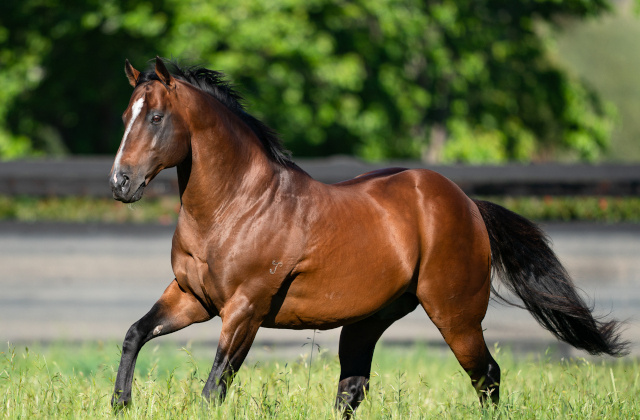The JM File: Australia’s Horse Capital Under Threat
Unless we act now, the lifespan of the local industries that support the Upper Hunter towns and families with jobs, income and lifestyle, will be in jeopardy.”
That’s the grim message from Arrowfield Stud’s proprietor John Messara after reviewing Bickham’s recently submitted Water Study which was placed on exhibition after being lodged with the NSW Department of Planning in April.
Bickham released the updated Water Study – known as the Water Resource Assessment and Draft Water Management Plan – in one of the final steps in determining whether or not the coal mine will get the go ahead by the Department.
The 6-week study exhibition takes the company a step closer to its objective of having the mine proposal assessed for the final decision on whether it will go ahead or not under the New South Wales Government’s Major Projects legislation.
The Bickham Coal Company is proposing to develop an open cut thermal coal mine in the Upper Hunter Shire – approximately 12 kilometres southeast of Murrurundi in direct proximity to the Pages River and Kingdon Ponds – to produce 2.5 million tonnes a year (total production of 36 million tonnes) over a 25-year period.
The Upper Hunter is primarily an agricultural region that currently has no open cut coal mining operations and only one (currently suspended) underground coal mine. The Bickham Coal Project has the potential to result in significant adverse impacts on surrounding groundwater systems and on the connected Pages River and Kingdon Ponds.
Arrowfield is one of 6 major thoroughbred farms who stand to be directly affected by Bickham. In combination, the land value of these properties touches $184m, bloodstock $643 million and the total annual revenue of the six exceeds $183.5 million.
“If you want to refer to ‘black gold’ in terms of Upper Hunter resources you would be ignorant to overlook the agriculture and related industry as well as mining,” says Messara. “Not many industries can lay claim to being in the top 3 in the World – but the thoroughbred breeding industry in Scone holds exactly that position.”
“It’s assumed that if you are against a development proposal then you are against the product. I am not against mining. It is an industry that has a deserved place. My argument is that in relation to this particular mine the threat posed by its development to existing and remaining industry is disproportionate to any economic benefit. On those grounds it makes no sense to proceed.”
“Sure the government can approve a mine for 25 years. But if existing agriculture is forced out due to water contamination, lack of water, or general pollution, what exactly will sustain the long term planning requirements of the town, its residents and other service providers after the mine shuts? That’s the multi million-dollar question that mining developers never seem to answer in their reports. The simple fact is they won’t be around to have to deal with the wash-up anyway.”
The picturesque Pages River – whose meandering curves lie just 150m from the proposed Bickham mine – runs downstream through the centre of Arrowfield Stud. The river bed is currently dry after limited seasonal rain but deep beneath its sandy floor it feeds a number of aquifiers that fuel the irrigation needs of the majority of downstream farms.
“Without water we have nothing. But based on Bickham’s own study this coal mine will extract 2 million litres of groundwater a day at its peak. The Report also says in black and white that it will take 105 years for the Pages River to return to normal. That’s a pretty sobering statistic. That’s not my children or their children’s generation – that’s their grandchildren’s generation.
“The mine is also confusing people with mixed messages. It advertised in a recent media release that it will offer 300 jobs. In truth, if you read the small print on an ancillary document you will discover that they are offering less than 100 full time positions. Six thoroughbred studs alone affected by Bickham employ 257 full time workers. The majority of these workers reside on the farms where they are employed. In essence then this mine stands to seriously displace families rather than create jobs.
“Bickham has played on the edge of the Upper Hunter’s community consciousness for many years,” continues Messara. “People may indeed have become almost immune to the reality of this mine coming into play. With the release of the Water Report the gun has been fired and the race is now on. If the local community do not take this opportunity to band together and recognise the key issues that affect them then they will need to live with the fact that the life they take for granted, their jobs, their income and lifestyles will change forever.
“I fully understand that the history of mining approvals in this State concerns a lot of people. The reality is however that Bickham is a limited resource mine. Ironically perhaps, existing industries in the area have already proven that in combination they generate higher revenues over the same time period employing more people and ensuring continuity of lifestyle and land use for future generations!
The approval of the Bickham mine would be a planning disaster for Scone and surrounds. Australia’s Horse Capital is fundamentally at risk.
“I think it’s about time people got concerned,” concluded Messara.
Want to follow the debate? Join the Facebook Group ‘Living in the Upper Hunter’.


